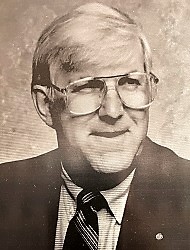
Thank Roosevelt for Football Weekends
December 20, 2013
By Rob Kaminski
MHSAA benchmarks editor
The next time you find yourself immersed in a tense crosstown football rivalry on a Friday night followed by a Saturday pilgrimage to the nearest college campus and a Sunday afternoon with a remote and your favorite snacks and beverages, take a moment to consider what the weekend would be like if it weren’t for Teddy Roosevelt.
The man who became our 26th President shortly after the turn of the 20th Century following the assassination of William McKinley in 1901 was a football fan like you. Maybe more so.
Today’s game of football has reached a critical crossroads. Player size and speed have increased across the board. Savage use of equipment as weapons rather than protective gear has been glorified on television networks and social media. Leaders of the game at all levels have recognized the need for change, employing new rules and widespread educational efforts to aid in preserving the sport.
History, as they say, is repeating itself.
In an ironic twist, it was Roosevelt who saved the then-brutally violent game of football from itself more than 100 years ago. Yes, the same “Rough and Ready Teddy” who led the charge up San Juan Hill during the Spanish-American War and often sparred in the boxing ring while in office from 1901-09 opined that football was becoming so gruesome that he delivered an ultimatum: clean up the game or it would be outlawed.
The Chicago Tribune reported that in 1904 alone, there were 18 football deaths and 159 serious injuries, mostly among prep school players. Football deaths suffered by younger players were reported on a nearly weekly basis, as outraged citizens called on colleges and high schools to banish football outright.
In stepped Roosevelt, who called head coaches and representatives from Harvard, Yale and Princeton – college powers at the time – to the White House in 1905 urging them to eliminate excessive violence and set an example of fair play for the rest of the country. When the casualties actually rose by one during the ensuing season, Roosevelt reacted with greater resolve and convened leading football authorities for the purpose of authoring drastic rules changes. What emerged was an intercollegiate conference which was the predecessor of the NCAA.
Among the most effective changes for the 1906 season were the legalization of the forward pass, the elimination of mass formations, and the creation of a neutral zone. Football fatalities fell to 11 in each of the next two seasons, and severe injuries fell drastically.
Thanks to the introduction of protective equipment and ever-evolving rules changes, football during the 100-plus years to follow has become an exponentially safer game. Yet, the game’s leaders always will need to adjust and react to scrutiny that comes with the territory.
So, as the game once again undergoes rules modifications in the name of safety, give a tip of the cap to President Roosevelt while you enjoy college bowl season and the NFL playoffs and begin to think ahead to the first high school practice of 2014.

Greenhills' AD Seng Honored Nationally for Contributions to Women in Coaching
By
Geoff Kimmerly
MHSAA.com senior editor
December 14, 2022
Ann Arbor Greenhills athletic director Meg Seng – also a member of the MHSAA Representative Council – has been named the first Peg Pennepacker Paving the Way Award winner by the Global Community of Women in High School Sports.
Seng is in her 38th year of service to schools and athletes, and has served as Greenhills athletic director since 2003 after previously teaching and/or coaching there and Ann Arbor Huron.
The honor from GCWHSS recognizes Seng’s contribution to encouraging female athletes to become coaches. In 2001, Seng co-founded The Academy of Sports Leadership, a non-profit organization that provides education and training for women interested in becoming coaches.
In 2021, Seng received a Citation from the National Federation of State High School Associations (NFHS). She also has received the MHSAA’s Women In Sports Leadership Award and Allen W. Bush Award, as well as the Jack Johnson Dedicated Service Award from the Michigan Interscholastic Athletic Administrators Association (MIAAA). Seng was named state Athletic Director of the Year by the MIAAA and Michigan High School Coaches Association (MHSCA) during the 2021-22 school year.
Seng received her Pennepacker Award during the recent National Athletic Directors Conference in Nashville, Tenn. Her Greenhills athletic program also was one of two from Michigan (with Mattawan) to receive a Quality Program Award from the National Interscholastic Athletic Administrators Association (NIAAA).
Pennepacker, from Pennsylvania, is an NIAAA Leadership Training Course national faculty member and considered one of the foremost experts nationally on Title IX issues. She formerly served in education for more than 36 years and continues her service in various roles in her state and nationally. She’s received the NIAAA Distinguished Service Award and was inducted into the NIAAA Hall of Fame on Tuesday.
***
Jack Johnson, a legendary swim coach at Dearborn and honoree with the MHSAA's Charles E. Forsythe Award in 1988, was among eight inductees into the NIAAA Hall of Fame.
 Johnson served as a teacher, athletic director and coach at Dearborn High School for nearly 40 years, leading the boys swimming & diving team to Lower Peninsula Class A championships in 1971, 1972 and 1974 and being named state Athletic Director of the Year by the Michigan Interscholastic Athletic Administrators Association (MIAAA) in 1983.
Johnson served as a teacher, athletic director and coach at Dearborn High School for nearly 40 years, leading the boys swimming & diving team to Lower Peninsula Class A championships in 1971, 1972 and 1974 and being named state Athletic Director of the Year by the Michigan Interscholastic Athletic Administrators Association (MIAAA) in 1983.
He also received an NFHS Citation in 1984 and was inducted into the Michigan High School Coaches Association Hall of Fame that same year; the MHSCA Hall of Fame reports that Johnson won 13 league championships over 17 years and coached 25 high school All-Americans.
Johnson, who died at age 90 in 2019, also served on the MHSAA Representative council, and the MIAAA Distinguished Service Award is named for him.

